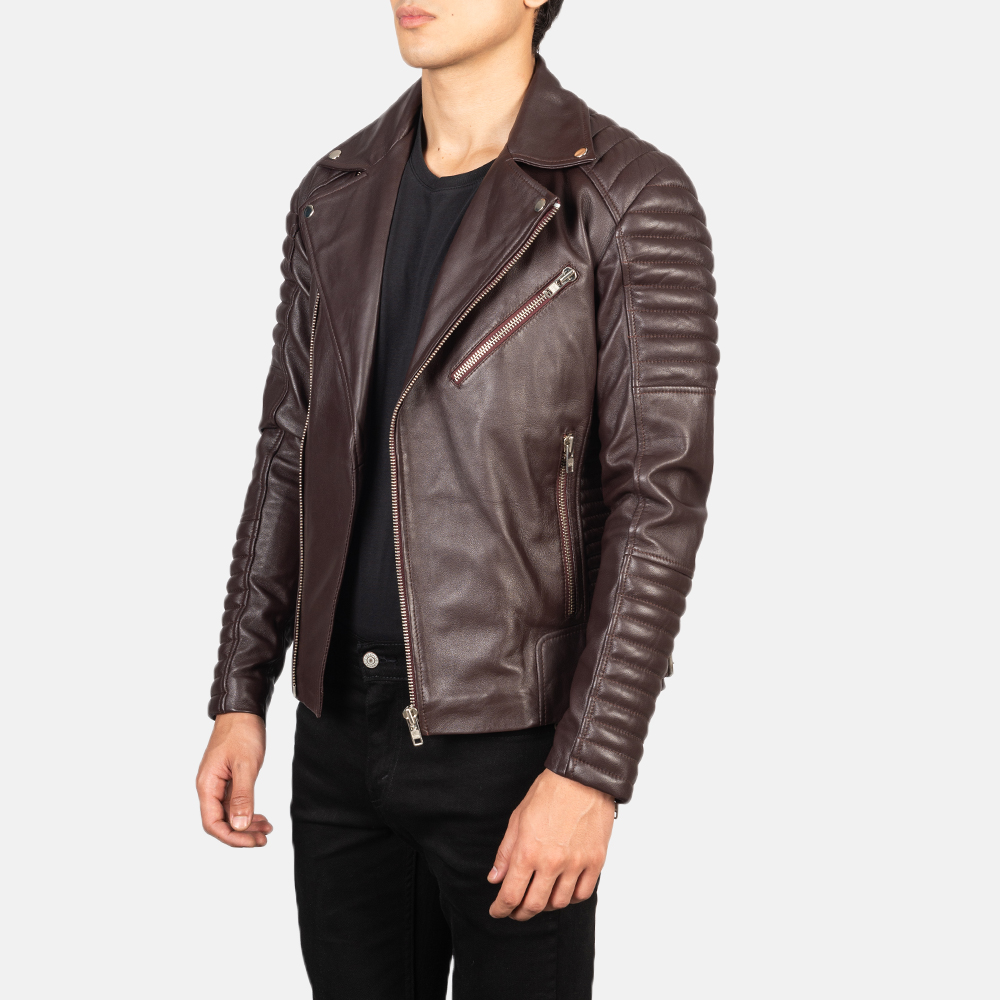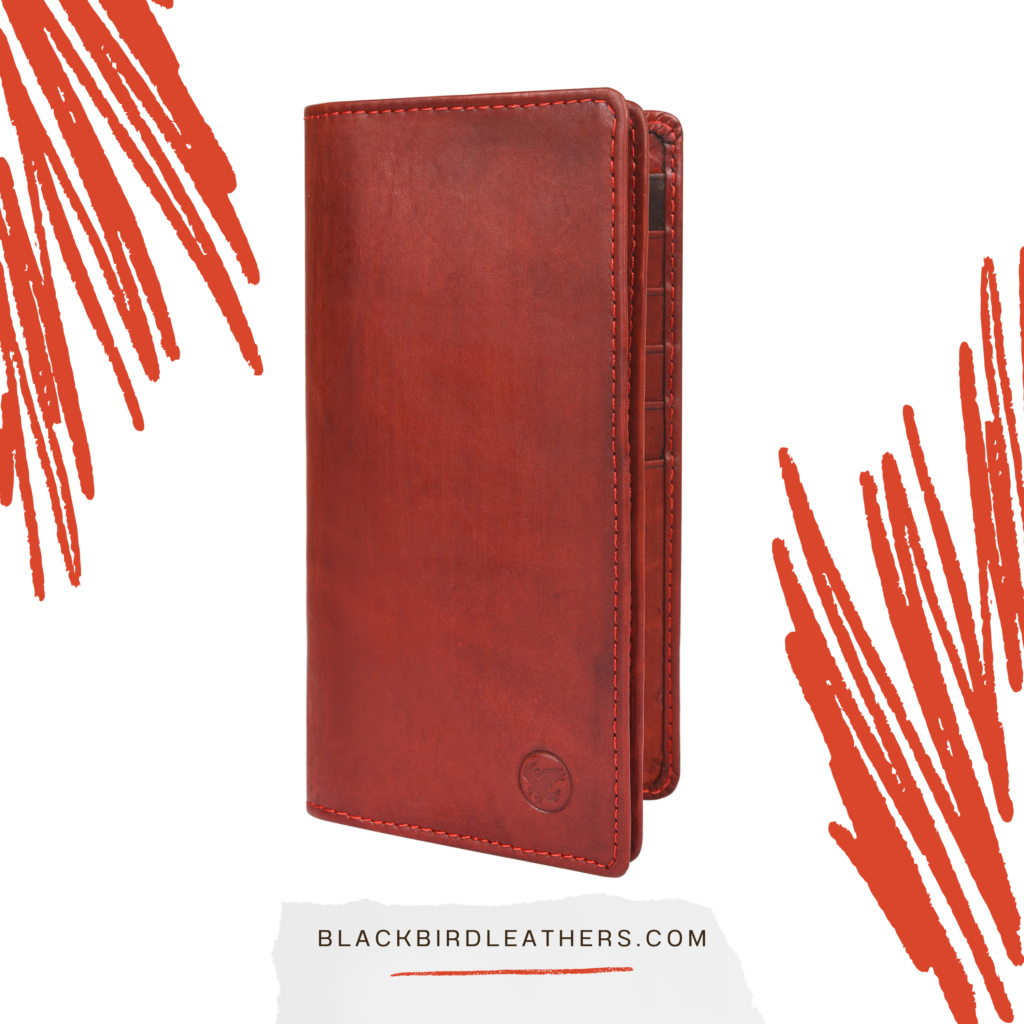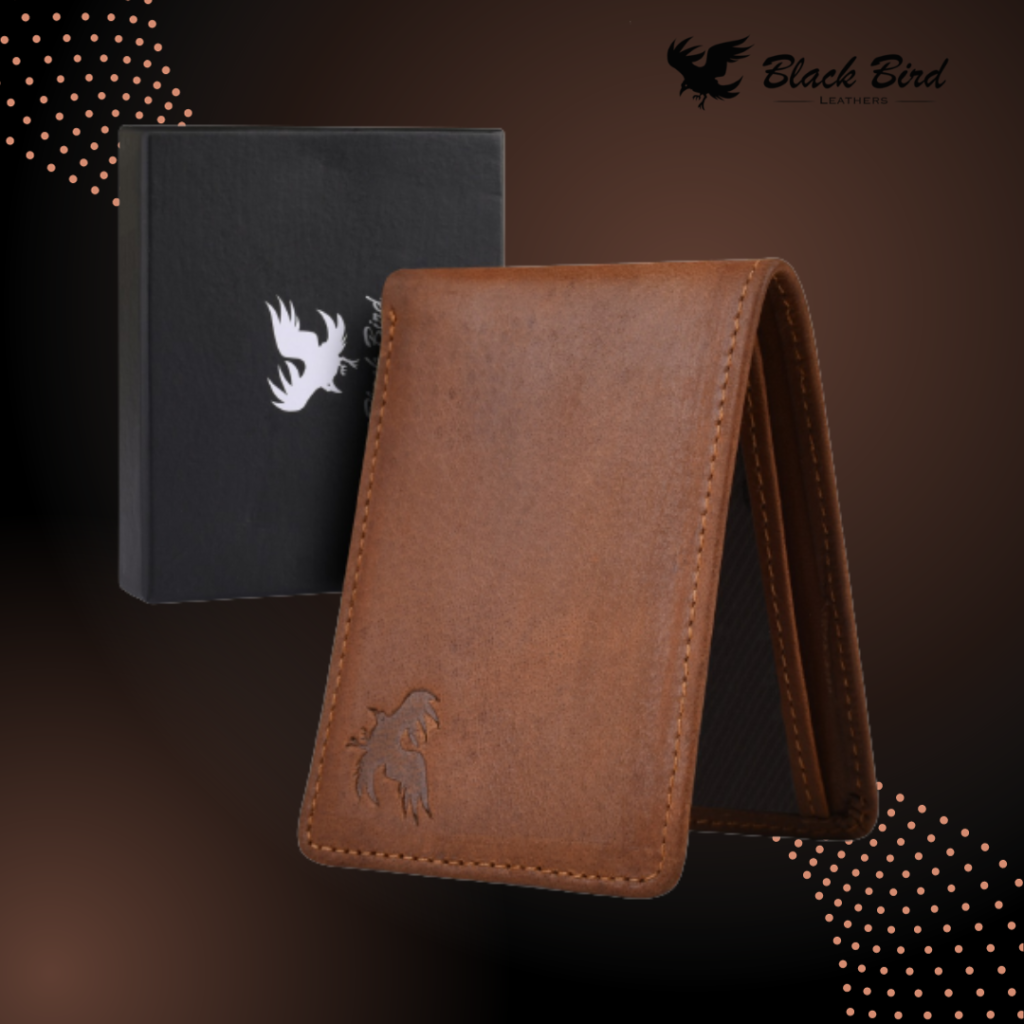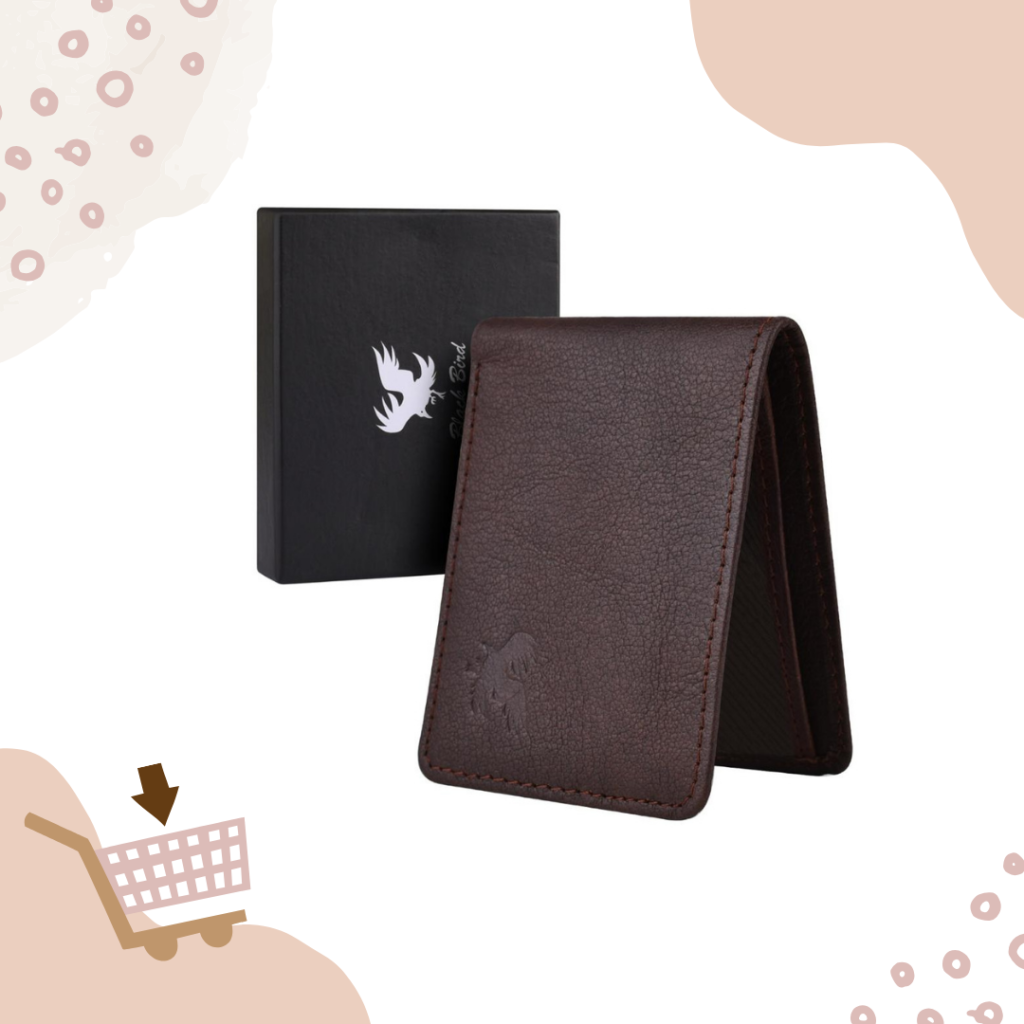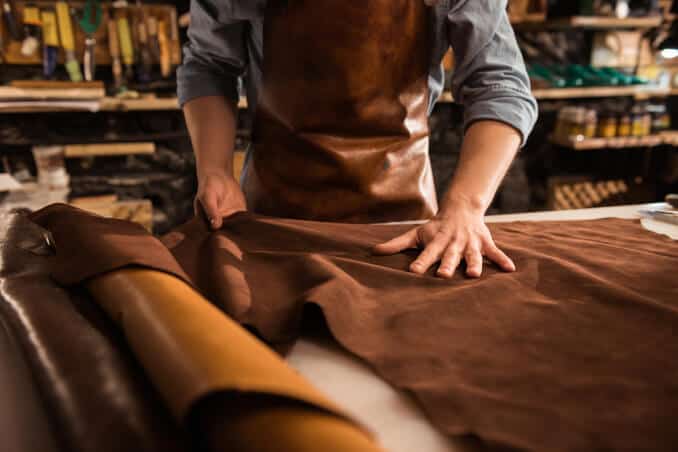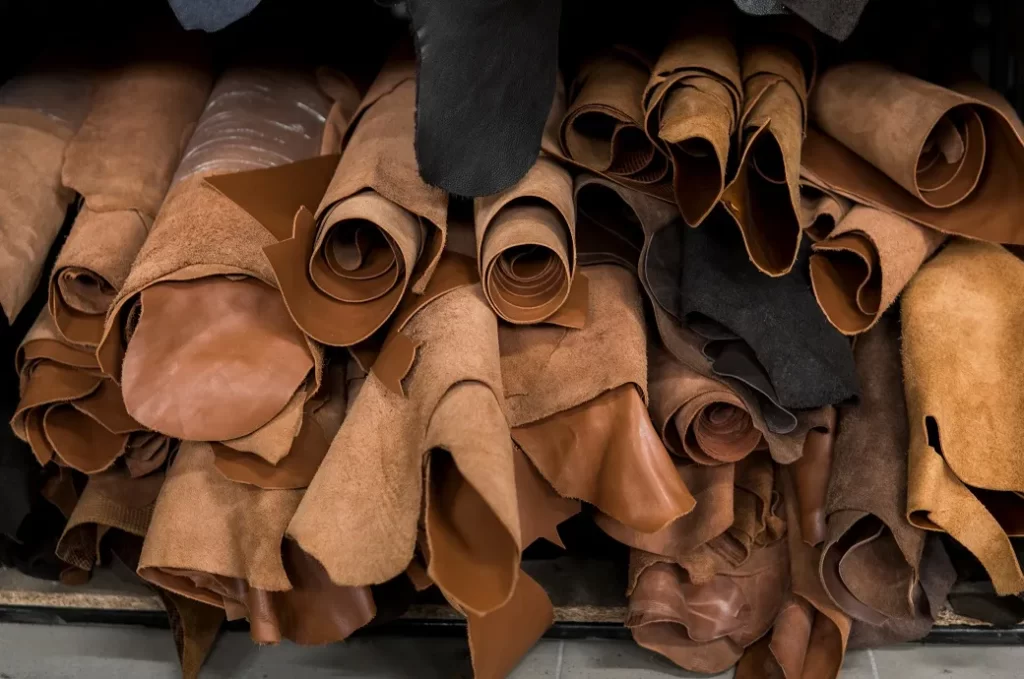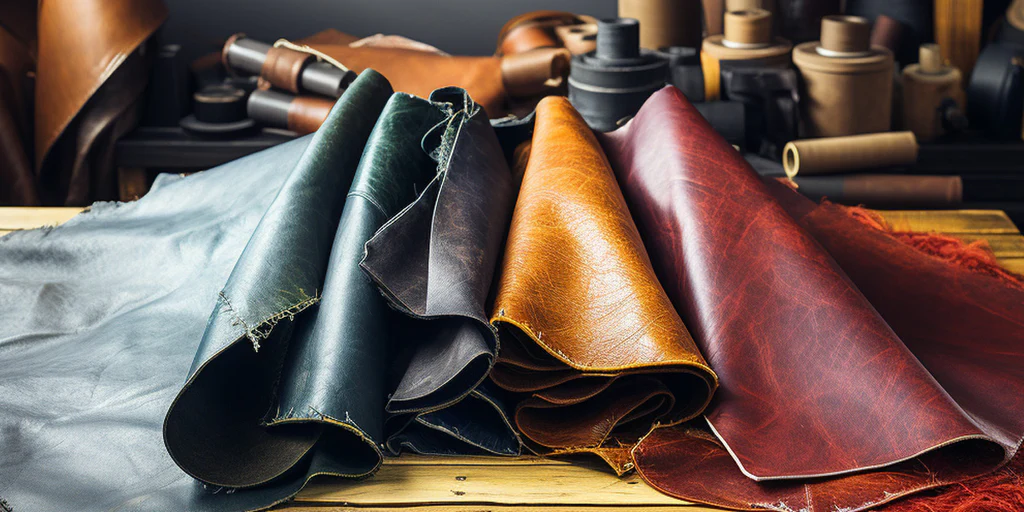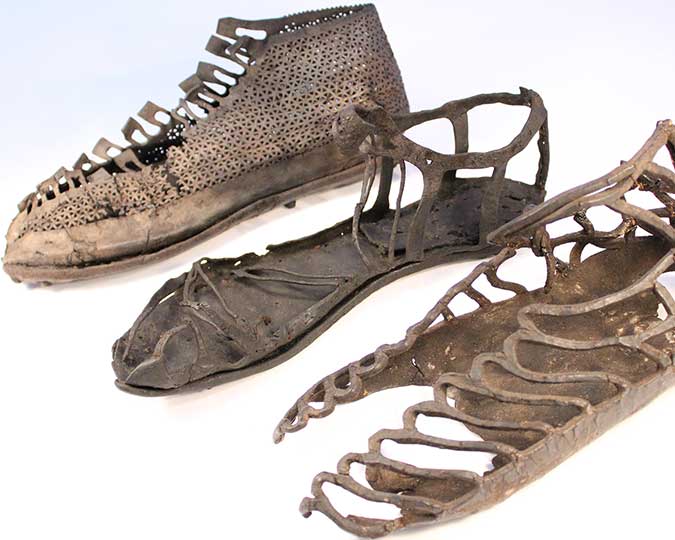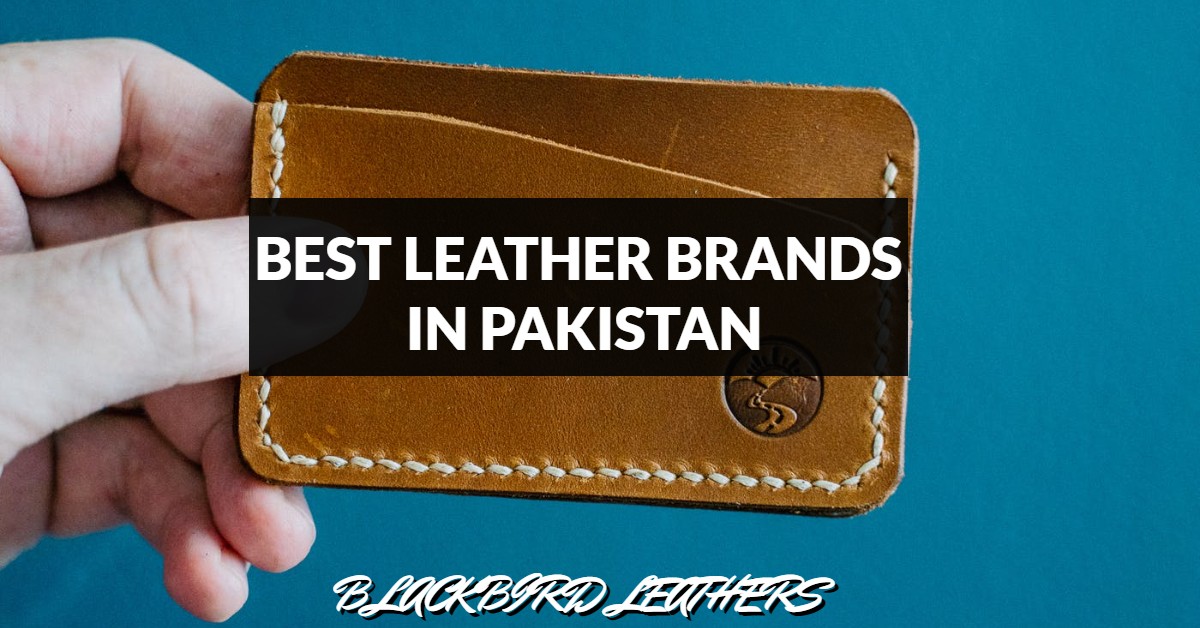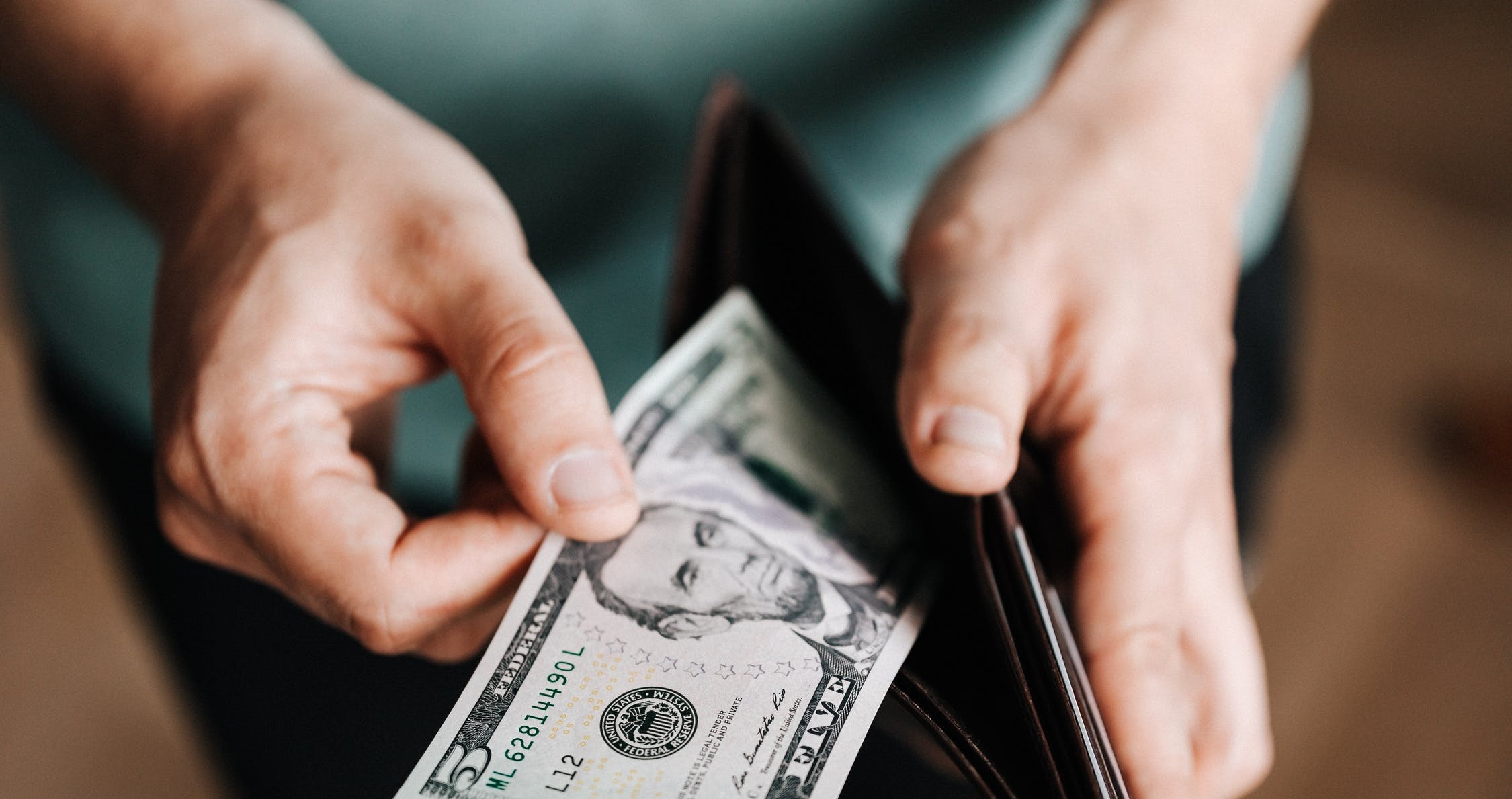Your journey to the best fruit leather experience awaits. Explore the top 6 finest fruit leather brands, each offering unique flavors, innovative crafting, and eco-friendly options. Fruit leather is a substance that resembles vegan leather and is entirely cruelty-free, making it ideal for anyone who has a special fondness for cuddly, adorable cows. The Italian firm Mabel produces the material, that Frumat created. The material, formally known as Fruit Skin, is relatively new; bags were initially manufactured in 2019.
How is Fruit Leather Made?
Fruit leather is a substance that is partially biological, or natural and organic. This makes it a bio-based material. Fruit skins, seeds, and stalks are not useful when used to make juice or jam. These “leftovers” were only thrown away before fruit leather was invented because the industry could not use them.
These days, Frumat gathers these otherwise discarded fruit fragments and transforms them into chic garments. The leftovers, similar to the fruits juiced, are crushed and naturally dried into a fine powder. To create fruit leather, this powder is combined with a type of resin that has been effectively dried and spread out. Fruits can make up as much as 50% of the finished product, with the resin serving as the powder’s coating and binder. Polyurethane is the name of the resin that goes into making traditional synthetic leather.
Is Fruit Leather Sustainable?
Is fruit leather sustainable given that it is partially synthetic and partially bio-based? It’s critical to comprehend the effects other comparable materials have on the environment when taking this into account. Cow skin leather, the most popular type of leather, is the third most environmentally harmful material to create, according to research from the Sustainable Apparel Coalition (SAC). The SAC index, which takes into account eutrophication, chemistry, water shortage, climate, and the usage of fossil fuels, indicates that this is the case. Surprisingly, the impact of even polyurethane synthetic leather is less than half.
Even if the production of polyurethane synthetic leather is less environmentally harmful than that of cow skin leather, it is still less sustainable than fruit leather because it is entirely synthetic and made of fossil fuels. There is a range of sustainability. The least harmful type of leather is fruit skin leather, in part because it uses less fossil fuels than both animal and fully synthetic leather. That’s always a good thing, especially in light of the catastrophic effects fossil fuel mining has on global warming. The extra advantage of using fruit peel is that it repurposes fruit material that would otherwise go to waste.
Many creative fruit leather brands are using ethical supply chains to produce fruit leather shoes, bags, and accessories of a high caliber. Below are a few of our top picks:
1. Matt & Nat
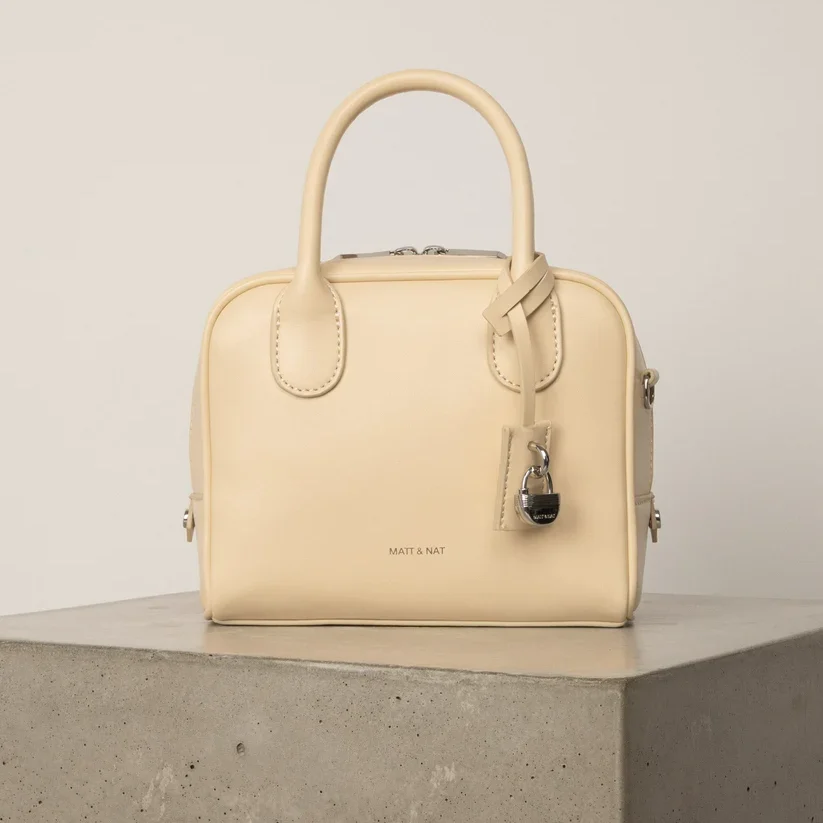

CRETE VEGAN SATCHEL – APPLESKIN (Apple Leather)
The brand has been a pioneer in the vegan handbag industry for a long time, and they now offer an Appleskin range! Totes, wallets, shoulder bags, crossbody bags, and more are available in its exquisite apple leather line. Dedicated to creating classic, high-quality products without the use of leather or other materials derived from animals, Matt & Nat is a Canadian vegan brand. Every item in its line is cruelty-free and vegan. Founded in 1995 in Montreal, MATT & NAT embraces a “live beautifully” ethos, prioritizing creativity, positivity, and sustainability. Committed to cruelty-free design, they shun animal-based materials. Their collections, featuring recycled materials, now adorn 800+ boutiques globally. Annual recycling of 9 million plastic bottles underscores their dedication to eco-friendly fashion.
2. Blackbird Leathers
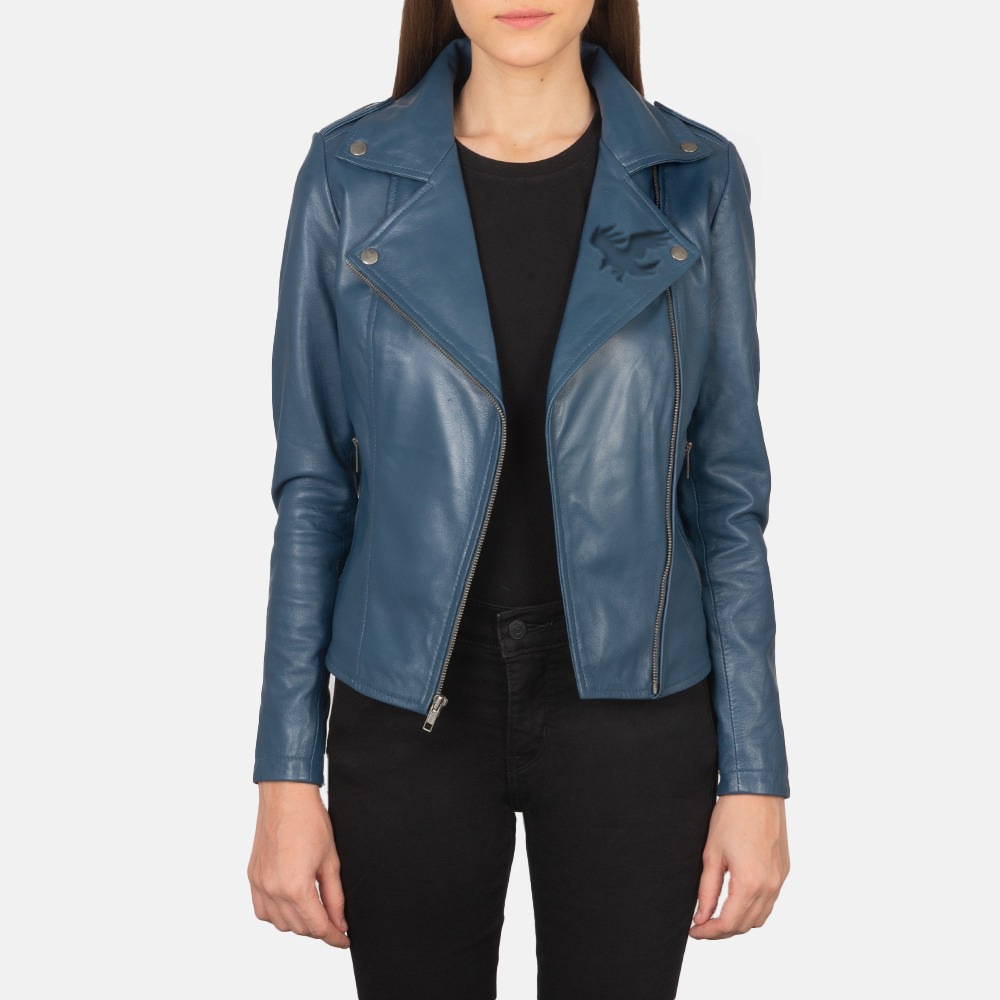

Blue Pearl | Fashion Leather Jacket | For Women (Fruit Leather)
Established in 2019, Blackbird Leathers stands out as a reputable leather brand renowned for crafting custom leather products. What sets them apart is their unwavering commitment to customer preferences. Blackbird Leathers is pleased to provide 100% vegan leather goods in response to the rising demand for vegan substitutes. However, the brand uses sustainable practices in the production of its vegan leather goods and embraces an eco-friendly manufacturing procedure. Because of its commitment to environmental responsibility and personalization, Blackbird Leathers stands as an innovative competitor in the leather industry. For any custom leather product feel free to contact us!
3. Fruitleather Rotterdam
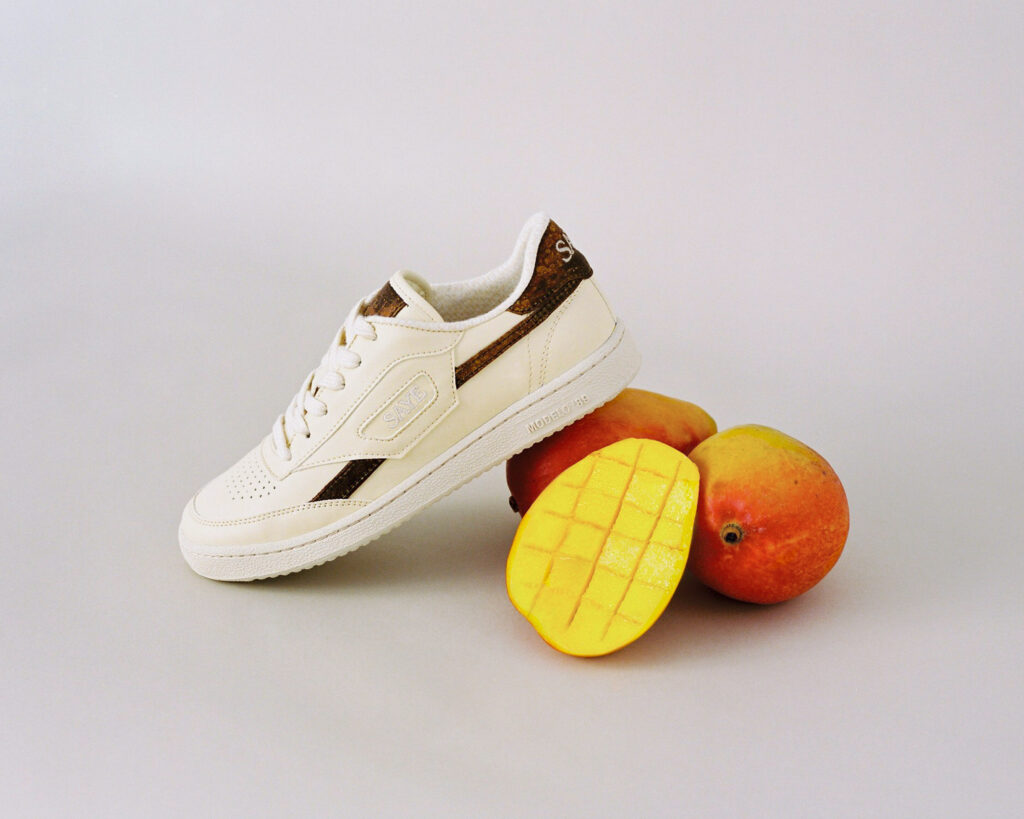

Shoes Made of Mango Leather
Koen Meerkerk and Hugo de Boon, a design duo hailing from Rotterdam and graduates of the Willem de Kooning Academy. Showcase a profound commitment to transforming perceived waste into value in today’s circular economy. Armed with a spatial design background, the duo concentrates on material development, operating from their new workspace in Bluecity alongside other circular enterprises striving for a zero waste economy. Additionally, focused on raising awareness about food waste, Fruitleather Rotterdam, under its vision, breathes new life into discarded mangoes. Their innovative process converts mango fibers into a vegan leather-like material, illustrating a positive approach to waste utilization. Moreover, this brand not only addresses the food waste issue but also contributes to a global community of designers seeking sustainable materials.
4. VEGEA
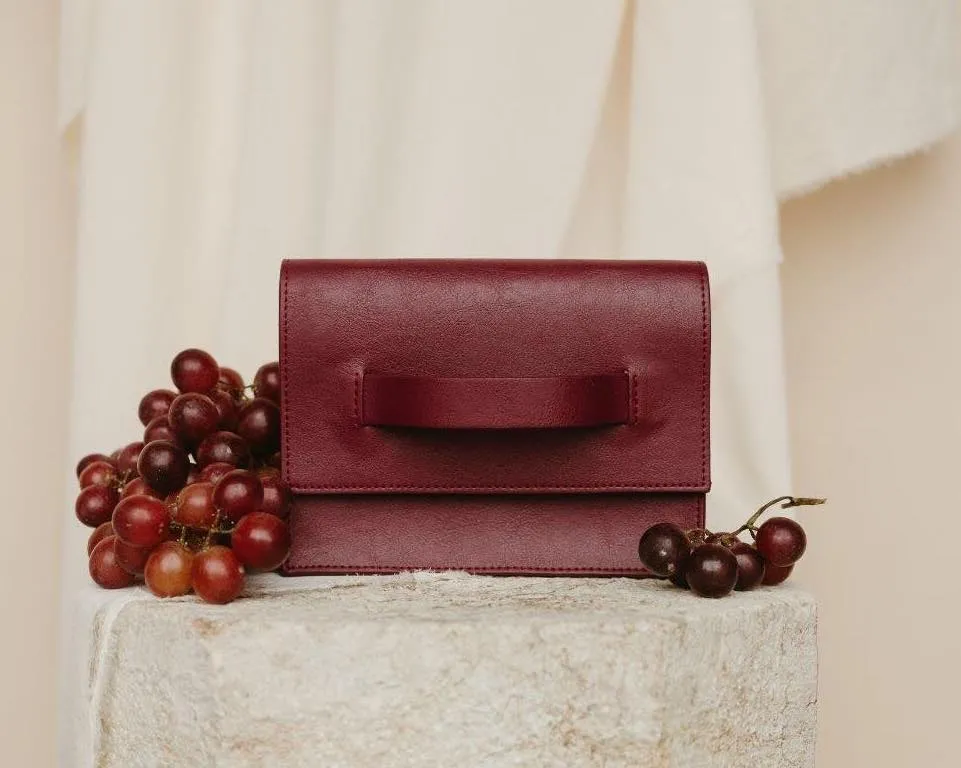

Grape Leather Bag
VEGEA creates plant-based substitutes for materials made entirely from synthetic oil for use in furniture, fashion, packaging, automobiles, and transportation. Specifically, VEGEA has created an alternative to leather using wine waste—that is, the leftover grapes from wine production—in collaboration with Italian wineries. It intends to identify the future generation of alternatives to materials that are solely generated from oil and animals. However, the term VEGEA is a combination of the words VEG (vegan) and GEA (Mother Earth). Different technical and aesthetic qualities, like thickness, texture, and finishing, are offered by VEGEA.
5. Malai Biomaterials
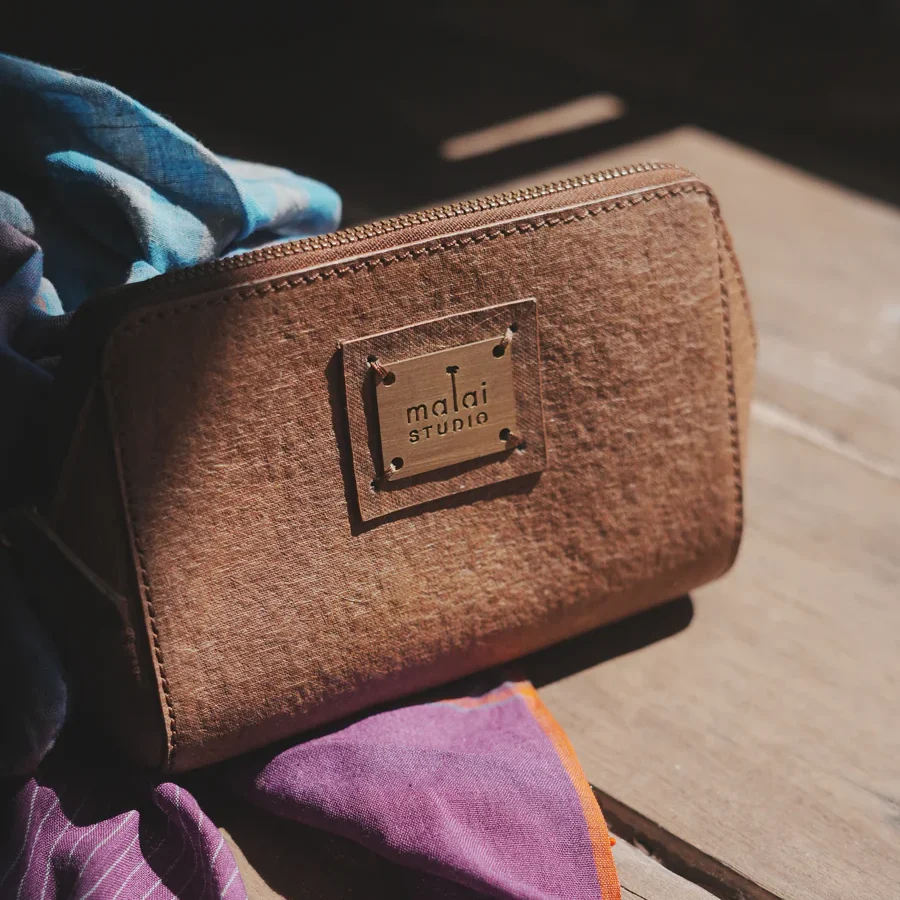

All basics pouch – CROSSBODY (Coconut Leather)
Two designers in Kerala, India, who saw firsthand the volume of garbage that polluted the environment from the coconut industry founded Malai Biomaterials. It was revealed that bacterial cellulose cultivated on waste from the Indian coconut-processing sector has the potential to change the material landscape and find uses in interior design, architecture, fashion, and product design. To harvest the flesh, mature coconuts are picked. A particular strain of bacteria is fed the coconut water after it has been gathered, filtered, and sanitized. These microorganisms produce a mat of bacterial cellulose fibers that are nanoscale after fermenting. After that, this is strengthened with fibers derived from hemp, sisal, and banana stems to produce sheets that may be naturally dyed using plant-based dyes before being dried and dewatered.
6. Ananas Anam
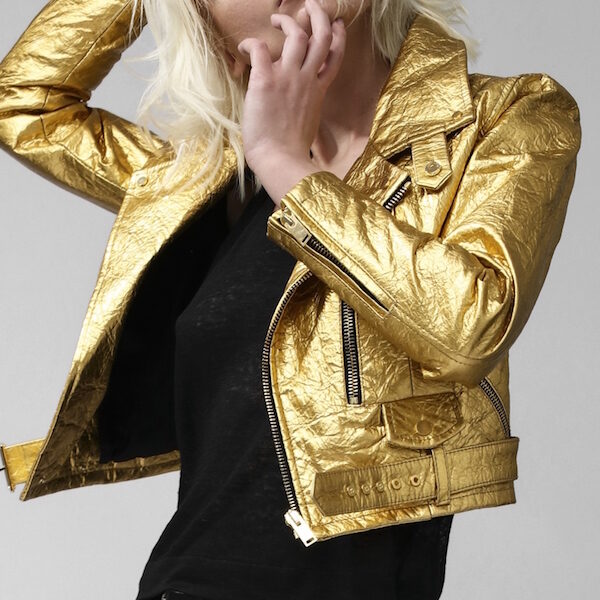

Metallic Vegan Gold Biker Jacket (Piñatex Pineapple Leather)
In the 1990s, Ananas Anam’s adventure started when Carmen. A leather products expert was offering advice on the Philippines’ export of leather goods. The sustainable vegan textiles Piñatex and Piñayarn are made from repurposed pineapple leaves by Ananas Anam, an innovative firm. Ananas Anam makes a social impact by creating jobs in rural communities. Giving pineapple growers a second, varied source of income by repurposing agricultural waste into natural textiles. Ananas Anam offers low-impact textile solutions to help companies and brands reach their climate and sustainability goals while lowering emissions.
Since pineapple leaf fibers are an agricultural waste product, no more land, water, or pesticides are needed to generate the raw material utilized to make products. Ananas Anam lowers the quantity of pineapple leaves burned, hence lowering the amount of CO2 emissions discharged into the environment through waste valorization. Furthermore, 12 kilograms of CO2 cannot be released for every linear meter of Piñatex. For every kilogram of Piñayarn, up to 6 kg of CO2 cannot be released into the atmosphere.
Final Thoughts
In conclusion, the emergence of 6 fruit leather brands championing sustainable fashion marks a significant stride towards a more eco-conscious and innovative industry. Transforming fruit waste, such as apple cores, mango pits, grape skins, and coconut husks, into a myriad of stylish products including jackets, bags, wallets, shoes, and accessories showcases a harmonious blend of fashion and environmental responsibility. These fruit leather brands not only contribute to reducing food waste but also pave the way for a circular economy by ingeniously repurposing discarded fruit materials. By seamlessly integrating sustainability with style, these fruit leather brands inspire a paradigm shift in the fashion landscape. Proving that ethical choices can indeed be fashionable and contribute to a greener, more sustainable future.
FAQs
Q1: What other types of vegan leather are there?
Several types of vegan leather, also known as faux or alternative leather, have gained popularity as ethical and sustainable substitutes. Some common varieties include:
Polyurethane (PU) Leather, Polyvinyl Chloride (PVC) Leather, Piñatex, Mushroom Leather (Mycelium), Cork Leather, Recycled Polyester Leather, Appleskin Leather, Recycled Ocean Plastic Leather, Corn Leather, Cactus Leather etc.
Q2: Is fruit leather waterproof?
The fruit leather sheets are not waterproof; rather, they are water resistant due to the application of a waterproof repellant on their surface. This makes the cloth more water resistant. It is not recommended to let the material get too wet for too long.
Q3: What is virgin leather?
Anything marketed as “virgin leather” indicates that the animal the skin comes from has not been killed specifically for its leather.

